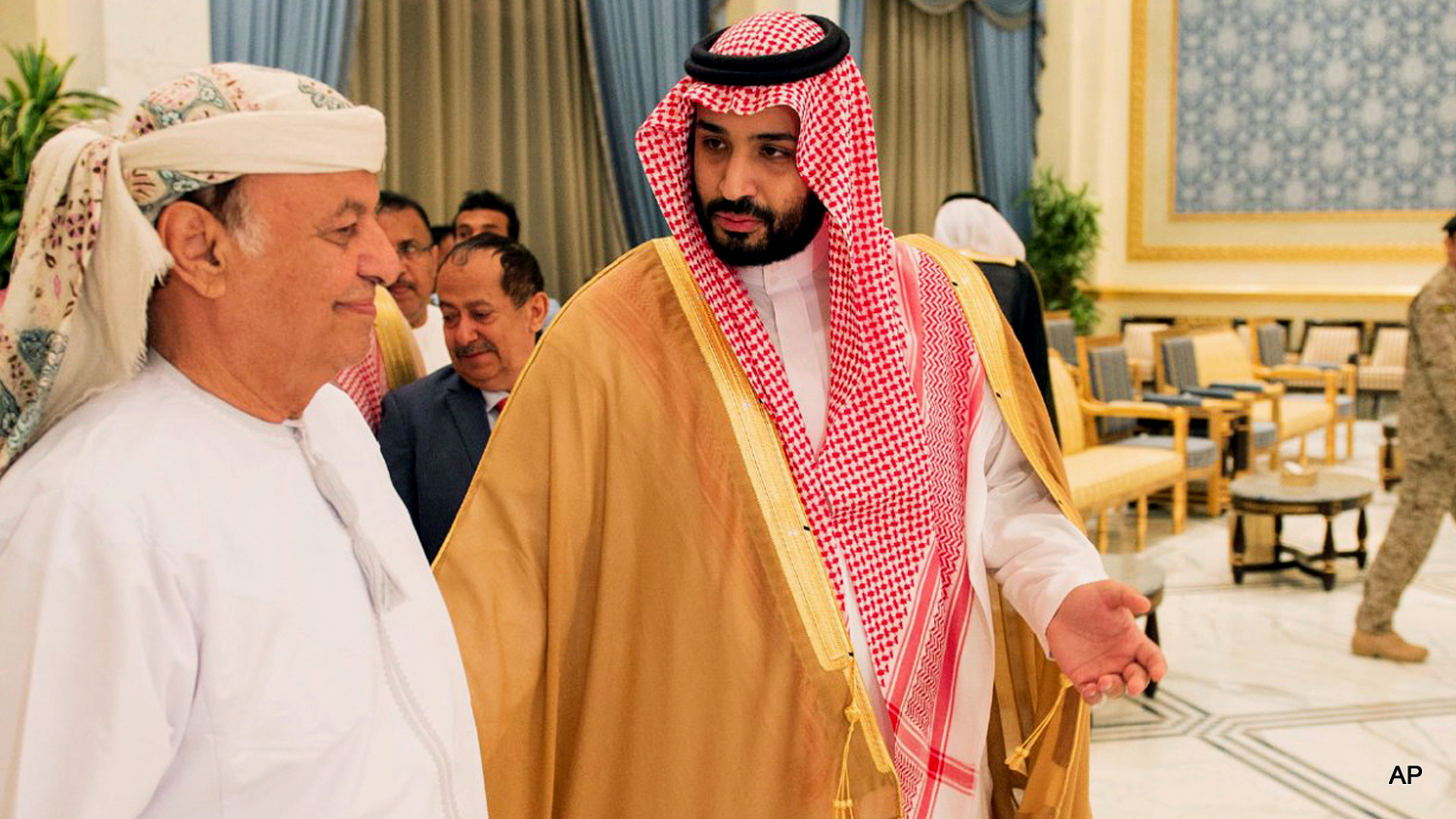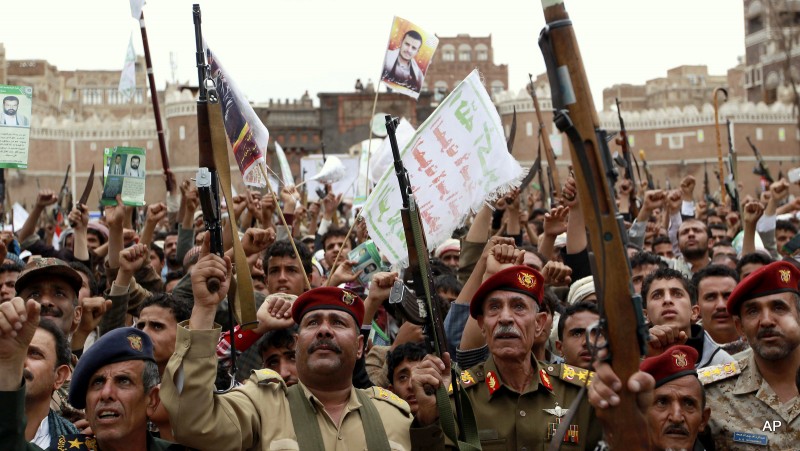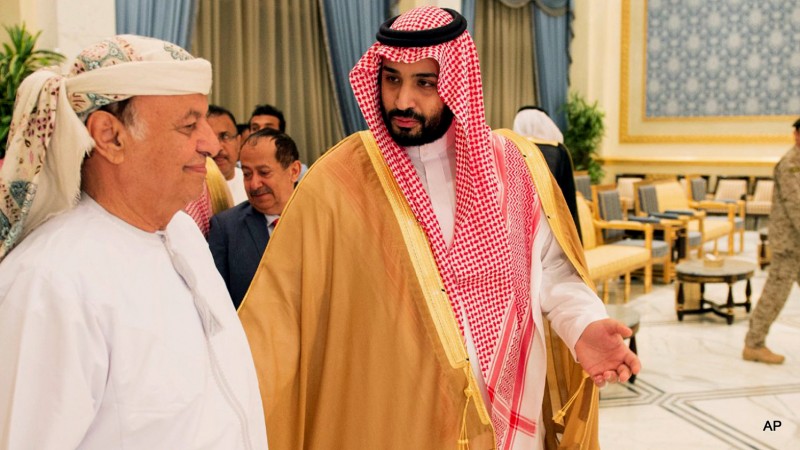
(Analysis) — Friday marked a full year since a Saudi-led coalition launched its attack on Yemen, leaving the poorest nation of Southern Arabia to crack and burn under a brutal display of military force while its civil infrastructure is ground to dust.
“For the past year, governments that arm Saudi Arabia have rejected or downplayed compelling evidence that the coalition’s airstrikes have killed hundreds of civilians in Yemen,” Philippe Bolopion, deputy global advocacy director of Human Rights Watch, said in a recent press release.
“By continuing to sell weapons to a known violator that has done little to curtail its abuses, the US, UK, and France risk being complicit in unlawful civilian deaths.”
Over 8,900 Yemenis have died in the onslaught, according to Sheba Rights. Schools, electric grids, water towers, factories, hospitals, cultural heritage sites, NGOs, and residential areas have been levelled by the fury dispensed by Riyadh, earmarked for destruction so Yemenis would be made to suffer absolute destitution.
Adding insult to injuries, Riyadh arranged for Yemen to be completely sealed off from the rest of the world — an isolated political pariah which had to be broken and starved before being allowed back into the kingdom’s fold as a pliable vassal to the will of the House of Saud.
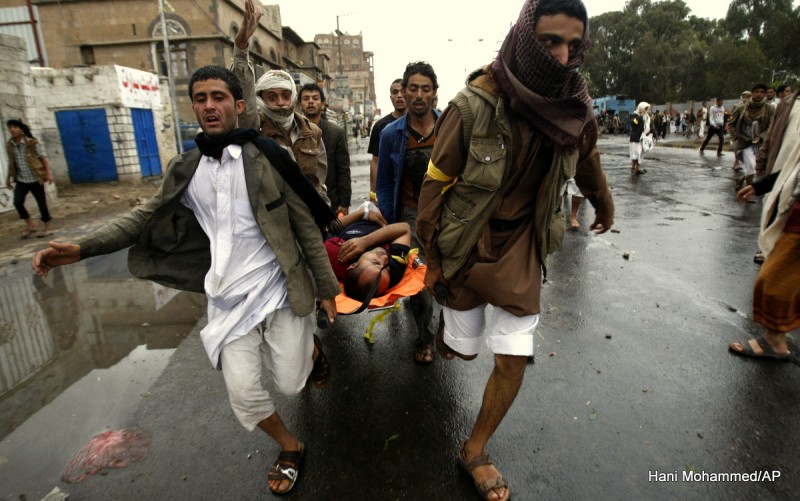
Dr. Riaz Karim, the director of the Mona Relief Organization, one of the very few truly independent NGOs based in Yemen, attested to the humanitarian catastrophe unfolding in Yemen as a result of Riyadh’s aggression.
“Yemen is a veritable humanitarian black hole. I have witnessed firsthand the destruction and the despair civilians have been put through under al-Saud’s draconian siege,” Karim told MintPress News. “Hospitals have long run out of medicine — no antibiotics, no anaesthetic, no pain relief in any form.”
Dr. Karim emphasized that out of Yemen’s 26 million people, about 23 million require some form of humanitarian aid, including 14.4 million who are food insecure.

Since the very beginning of this war of attrition against impoverished Yemen, Saudi Arabia has framed its military intervention within a narrative of political restoration, positioning itself as a responsible actor looking to reaffirm and protect balance within the region. However, Yemen represents too much of a geopolitical prize for anyone to assume Riyadh’s not motivated by anything besides bolstering democracy.
A jewel among all geopolitical jewels, Yemen today is to Saudi Arabia what India was to the Crown in the 19th century. Both a bridge and an access point onto several continents, Yemen also happens to possess vast natural resources, rich arable lands, and water.
It’s also a geostrategic key to the world’s oil route, Bab-el-Mandeb, and holds the promise of an alternative to the Strait of Hormuz through the construction of an oil pipeline in the eastern province of Hadramawt.
With Yemen as its vassal, Saudi Arabia stands to eclipse not just Iran, but any contender to its might through an almost absolute monopoly over the world’s oil route.
“The geopolitical importance of Yemen cannot be ignored. The country controls entry into the Red Sea (towards the Suez Canal) and the Bab-el-Mandeb strait, which although less important than the Strait of Hormuz, is the point of passage for oil and gas on its way to Europe,” wrote Alain Gresh in April 2015 in a report published for The New Arab.
“Stability in Yemen is also a vital strategic goal for Saudi Arabia. The late King Abdulaziz famously told his sons: ‘What is good for you and what is bad for you comes from Yemen.’”
In this bitter battle for hegemonic control Yemen’s a lamb brought to slaughter. The country has become a playground for a newly evolved form of asymmetrical imperialism, one which has relied on proxies to carry out its will, while muddying the political waters to obscure its aim: control through the establishment of an energy monopoly.
Engineering and disseminating a false narrative
If Saudi Arabia has exhausted many great efforts and resources in its war against Yemen, the kingdom has also made a point to control the media narrative of the conflict. Riyadh’s sizeable shares in several corporate and social media outlets greatly facilitated the kingdom’s carefully designed dissemination and deflection campaign — the ultimate weapon of mass deception.
Saudi Arabia’s ability to manipulate and co-opt is not to be underestimated, and the tragedy unfolding in Yemen should serve as a cautionary tale.
Last summer, MintPress published a report detailing Saudi Arabia’s newest asymmetrical weapon of war: aid. Dangling financial aid in front of NGOs and U.N. humanitarian agencies in order to control the flow of aid — or, in this case, the lack of aid – to Yemen, the House of Saud’s created a new strain of political exceptionalism which would make Washington proud.
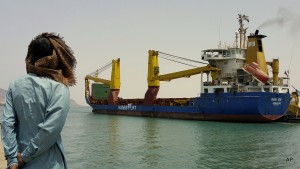
While Yemen’s suffering has seldom been condemned by mainstream media, the destruction it’s endured has been well documented. On March 10, a group of experts delivered a rather damning report to the U.N. Human Rights Council in Geneva, relaying systematic war crimes which have been — and continue to be — committed against civilian populations.
Still, for fear of upsetting the wealthy and growing Saudi lobby the international community has mostly chosen to look the other way, only too aware of the lucrative contracts a “friendly Saudi Arabia” could offer in exchange for political pliability.
“For Yemen dared imagine itself free, for Yemen had the audacity to stand in rejection of Riyadh’s U.S.-backed imperialism, an entire nation was allowed to suffer the abomination of a genocidal war, a war so violent and murderous that not even the most Saudi-sold and Saudi-controlled NGOs and other international institutions have been able to keep mum,” noted Kim Sharif, founder and head of The International League for Yemen War Crimes, to MintPress.
For the sake of appearances, and likely to justify the military violence which Riyadh’s military coalition unleashed upon Yemen, this war has been sold as a legitimate struggle against Iran’s covert militantism.
Touted as a necessary evil set in motion to return Yemen to its democratic transition and to prevent Tehran from claiming yet another capital to its growing coalition of allies, the so-called “Shia Crescent,” which Saudi Arabia and its Western backers have been so intent on portraying as a nefarious development.
Writing for The Huffington Post on Feb. 8, Akbar Shahid Ahmed explained: “The Saudis see Yemen a key arena for their regional competition with Iran. They and the U.S. both say Iran has supported the Houthis as a thorn in Saudi Arabia’s side.”
And while there is little to no proof of Iran’s influence in Yemen, aside from Iranian advisers urging the Houthis not to attempt a takeover of the Yemeni capital, Sanaa, Tehran’s shadow has not exactly darkened Yemeni skies. The only clear link between Yemen and Iran is that the countries share similar religious sensibilities, in that they’re both home to Shiite Muslim communities.
Iran’s role and pull in Yemen have long been overblown and taken out of context. More than that, though, experts have mostly misinterpreted Iran’s real connection to Yemen, playing into pre-packaged propaganda instead of assessing geopolitical realities.
However, this has not prevented Saudi Arabia from playing the Iranian card ad nauseam.
Addressing a small audience at the Center for a New American Security in February, Saudi Arabia’s military coalition spokesman, Brig. Gen. Ahmad Asiri, stressed: “It is not in the interest of one of the countries in the region if Yemen becomes another Somalia or another Libya. … So we decided to go and to give help in a military manner to the government.”
Saudi Arabia has claimed political restoration and played up resistance against Iran since the onset of the war. In March 2015, The Independent described King Salman as saying: “A Saudi Arabia-led alliance is willing to wage a military campaign against Houthi rebels in Yemen for as long as it takes to defeat the Iranian-backed group that has forced the country’s president [Abdo Rabbo Mansour Hadi] to flee.”
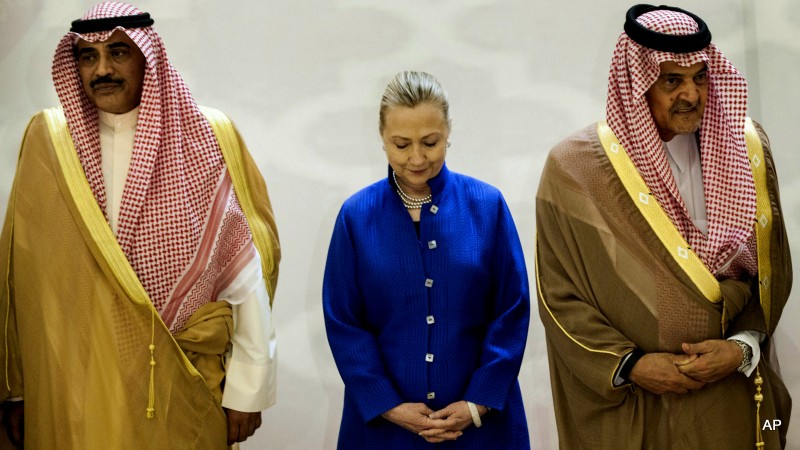
Dancing to the tune of Riyadh’s fronted political and religious paranoia, the corporate media has insistently framed Yemen’s war as a sectarian struggle, offering the eternal Shiite-Sunni divide by way of an answer for the bloodshed which has ravaged this poorest nation of Southern Arabia.
In this tragedy, Iran has played the role of the foe – the dangerous power which has worked since the dawn of time to pervert and imprint its ideology onto the world, a challenger to the mighty and otherwise uncontested will of a Saudi-led Islamic world.
This, of course, is little more than a myth or a fairy tale sold to a gullible public to cover very real geopolitical ambitions and one very real race for control over the world’s oil route. And, at best, it’s dangerously over-simplified.
In November 2014, Asher Orkaby wrote for the Washington Institute: “For its part, the foreign media has portrayed the Houthi rebellion in global terms of religious sectarianism, Iranian foreign policy, and al-Qaeda, while largely ignoring local Yemeni factors.”
Indeed, Yemen’s war has been reduced to a spat between tribal/political factions whose religious identities have inherently pitted them against one another – a bad replay of Yemen’s 1962 revolution.
An Imamate under the rule of a Zaidi monarch (Shiite Islam), Yemen sought military assistance from Saudi Arabia against the supporters of the Yemen Arab Republic, the leadership of which was backed by Egyptian President Gamal Abdel-Nasser. Five decades later, we’re told over and over again that the Houthis, who hail from the same region as the deposed Hashemite Mutawakkilite Kingdom, ambition to restore Yemen’s monarchical past and revive the rule of the imams to better return Shiite Islam to its northern Yemeni glory.
Back in 1962, Riyadh had no qualms about supporting Yemen’s Zaidi monarchy against President Nasser’s pan-Arabism. Then, it was Saudi Arabia — not the Shah — which ran to northern Yemen’s aid. Then, Iran’s religious denomination had no horse in Yemen’s political race. If faith had no real weight then, why assume that it has any today?
Today the Houthi-led resistance movement has been conflated with Iran’s alleged Shi’ization campaign, an argument which echoes a dangerously rancid xenophobia.
“The Saudis’ principal aim – to restore Yemen’s deposed President, Abd Rabbuh Mansur Hadi – has not been achieved. If they hoped to contain spreading Iranian regional influence, that has not worked, either,” Simon Tisdall wrote for the New Zealand Herald in March 2015.
This race for access and control is the true red line between Iran and Saudi Arabia that’s at the heart of the war on Yemen. Sectarianism was only ever played up as a weapon of mass deception and mass distraction.
The land of milk and honey
Yemen was literally set on fire so Riyadh could manifest its long-held ambition of an oil monopoly. Of course, Iran, a geopolitical juggernaut in its own right, was not going to stand idly by as the kingdom set out to raise its Wahhabi empire and challenge the Islamic Republic’s regional traction.
When it comes to ambitions, though, Saudi Arabia and Iran stand on polar opposite ends of a spectrum. While the former only understands absolute feudality, the latter prizes cooperation and self-governance. Where the kingdom seeks to impose, the Islamic Republic wants to empower.
They do, however, share a desire to contain one another’s ambitions in Southern Arabia. If ever there was in fact a proxy fight in Yemen, it would be over the control of Bab-el-Mandeb, the world’s oil route; Saudi Arabia’s proposed, U.S.-backed Hadramawt pipeline; and Yemen’s water resources in a region where desertification is a matter of national security.
Writing for Middle East Eye in February, Nafeez Ahmed, an investigative journalist and international security scholar, revealed: “Secret cable and Dutch government official confirm that Saudi Arabia’s war on Yemen is partly motivated by an ambitious US-backed pipeline fantasy.”
Yemen’s war needs to be looked at from a Saudi oil security perspective. After all, it was the oil kingdom which unilaterally declared war on its neighbor on March 25, 2015, around the same time that Yemen’s political factions were close to brokering a tentative political truce. Yemen was thrown into the fires of war so its land and the power it hides would remain under the control of Riyadh and, by extension, the United States.
Yet Yemen’s oil and gas reserves pale in comparison to that of its neighbors. The country’s true strength lies in its geography, even if foreign oil and gas companies’ interests suggest the country has more to offer than officials might have proclaimed.
With over 1,000 miles of coastline, this poorest nation of Arabia sits atop the world’s most strategic chokepoint. Should Gulf monarchies lose control over it, the Arab world as we know it would simply cease to exist. This is why Riyadh’s call for war was answered so fervently by the Gulf Cooperation Council countries and their regional and global allies.
What would happen if unruly Yemen were to unite with non-aligned Iran and resist an imperialist power-grab in the region? What power would the Islamic Republic hold over those nations which long sought to curtail its independence?
Beyond control over the world’s oil route, Yemen offers an alternative which would directly challenge Iran’s hegemony and oil security: the Hadramawt pipeline project. According to a secret 2008 State Department cable obtained by WikiLeaks, Saudi Arabia very much would like to re-route the oil flow through Hadramawt, cutting off Iran altogether.
The cable, sent from the U.S. Embassy in Yemen to the U.S. secretary of state and the GCC, reads:
“A British diplomat based in Yemen told PolOff [U.S. embassy political officer] that Saudi Arabia had an interest to build a pipeline, wholly owned, operated and protected by Saudi Arabia, through Hadramawt to a port on the Gulf of Aden, thereby bypassing the Arabian Gulf/Persian Gulf and the straits of Hormuz. [Yemeni President Ali Abdullah] Saleh has always opposed this. The diplomat contended that Saudi Arabia, through supporting Yemeni military leadership, paying for the loyalty of sheikhs and other means, was positioning itself to ensure it would, for the right price, obtain the rights for this pipeline from Saleh’s successor.”
Indeed, Yemen’s war was devised long ago as a last attempt to protect interests regional players cannot afford to abandon. Everything else is mere political decorum.


